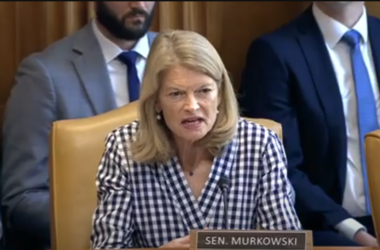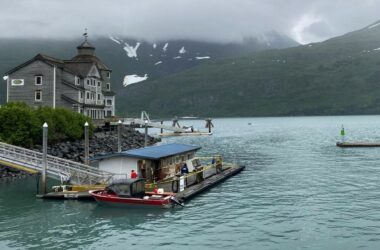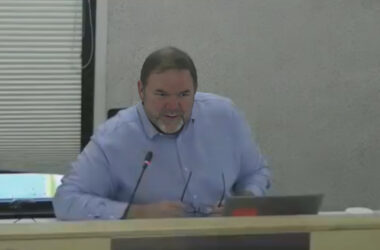Lawmakers in the House Labor and Commerce Committee heard testimony Wednesday on House Bill 161, which aims to amend certain provisions of Ballot Measure 1, the voter-approved initiative that raised the state’s minimum wage and instituted mandatory paid sick leave for workers.
The bill, sponsored by Rep. Justin Ruffridge (R-Soldotna) and co-sponsored by Rep. Julie Colombe (R-Anchorage), would make adjustments that supporters say are necessary to help small businesses adapt to the new requirements.
“House Bill 161 does not seek to overturn the will of the voters,” Ruffridge emphasized during the hearing. “Instead, it introduces modest amendments to help ensure small businesses aren’t overwhelmed.”
Ballot Measure 1, passed in Nov. 2024, enacted sweeping changes to employment law in Alaska, including raising the minimum wage and mandating paid sick leave. While the wage increase garnered broad support, business owners say the leave provisions, particularly for small and seasonal businesses, were less understood and are proving difficult to implement.
Under HB 161, businesses with fewer than 50 employees would be exempt from the paid sick leave mandate. The bill would also allow employees to cash out unused sick time at their request, require good-faith notice before absences, and exempt seasonal workers from the leave requirement altogether.
The bill has received support from business advocacy groups, including the Alaska Chamber of Commerce. Chamber President and CEO Katie Capozzi told lawmakers that 40% of likely voters surveyed after the election were unaware that the ballot measure included sick leave mandates.
“Many voters didn’t realize what was in the measure,” Capozzi said. “Now small businesses are facing compliance burdens they weren’t prepared for.”
Several business owners testified in favor of the bill, including John Weddleton, who has run a small business in Alaska for over four decades. “We’ve offered paid time off for years,” he said. “But when you’re starting out, mandates like this can make it harder to survive.”
Regina Davis, whose family’s concrete business in Kenai employs about 25 people and hires seasonal workers in the summer, echoed similar concerns. “We’re already stretched thin,” she said. “The seasonal worker requirement just doesn’t make sense for our business model.”
Ruffridge emphasized that the legislature cannot repeal a ballot measure outright within two years of its passage because of constitutional limitations. However, it can amend specific provisions. “We’ve worked carefully with legal staff to stay within those bounds,” he said.
Critics of the bill, though not present in the committee testimony, have previously argued that weakening the paid sick leave provisions could undermine protections for workers, particularly in service industries where benefits have historically been limited.
The committee is expected to continue discussion on the bill and hear additional public testimony at a later date.






